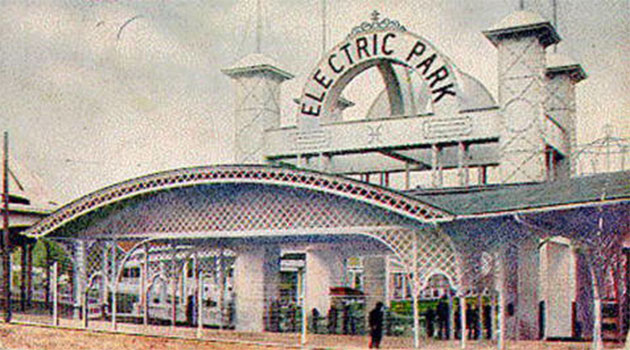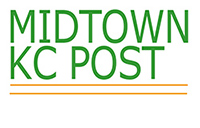 At the turn of the 20th century, Midtowners headed to Electric Park to beat the summer heat. The park offered fine orchestras, arcades and rides, and swimming. But as the park opened in 1907, the media asked the question: was the demand for liquor to be served in the park a reasonable one?
At the turn of the 20th century, Midtowners headed to Electric Park to beat the summer heat. The park offered fine orchestras, arcades and rides, and swimming. But as the park opened in 1907, the media asked the question: was the demand for liquor to be served in the park a reasonable one?
As we told you yesterday, The Heim family of beer brewers built both the first and second Electric Parks. But when owners moved the park south in 1907, saying they needed to follow the relocation of their patrons, the city fathers decreed there would be no beer sold at the new location.
“The question of a license to sell beer and liquor at Electric park has become the subject of political agitation,” The Kansas City Star reported on June 5, 1907. The decision makers at the time were the members of the police board. One of them, R.R. Rozzelle, was adamant that he would never approve of a license for a park in the twelfth ward, which contained much of the new “south side” of Kansas City.
“A mass meeting is to be held Friday night in the Linwood Boulevard Presbyterian Church to gather public opinion on the question. This is the Twelfth ward in which there are no saloons. Police boards have always refused to grant licenses for saloons in that ward because it is a residence ward throughout. In the meeting Friday night men who have been leaders in Kansas City politics for years and businessmen who own homes there and have large realty holdings are to speak against the license,” the newspaper reported.
Rozelle mentioned he had recently been at a Kansas City park where he witnessed a boy and a girl, both under 21 years of age, “and from their appearance and dress, children of respectable parents, leaving Electric park in a state of maudlin intoxication.” This solidified his view that parks frequented by women and children were no place for alcohol.
But pro-beer opinion was also strong, threatening to present the police board with a petition signed by 25,000 who favored beer sales. The Star reported that the supporters were mounting a somewhat unusual campaign.
“The intent of the park management is to show, by a monster petition, that there is an overwhelming demand for beer in the summer gardens. It raises the question whether beer is a necessary part of park entertainment in Kansas City.”
“It is often urged as one reason why such places as Electric park and Forest park in Kansas City should have saloon licenses that poor people have so few sources of pleasure that it would be a hardship to deprive them of the right to drink whiskey and beer when they desire it,” the paper wrote.
But the Star clearly came down on the side of no beer.
“Experience has demonstrated that the attendance at parks is not decreased by the absence of beer, but the profits of the management are affected,” it opined.
A year later, the issue was still alive. A vote again came before the police board in May of 1908. By a vote of 2 to 1, the board voted down an application. When the vote was cast, a hundred spectators in the chamber rushed forward to shake hands with the commissioners who had stood firm. The dissenting vote came from the mayor. According to the Star:
“Mayor Crittenden’s vote to grant the license was preceded by a statement in which he said that Kansas City was no longer a village and the demands for liquor licenses in the parks was a reasonable one. “



Who’s talking